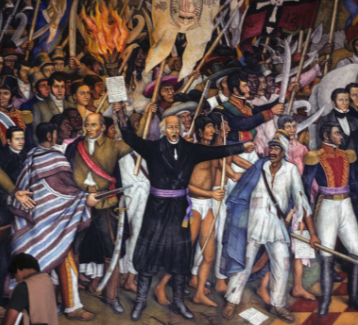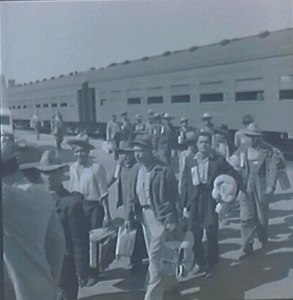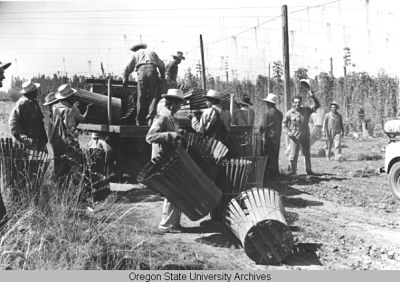Emory Libraries is pleased to celebrate National Hispanic Heritage Month, which takes place each year between Sept. 15 and Oct. 15. This period commemorates the important contributions of Americans who trace their roots to Mexico, Central America, South America, and the Spanish-speaking islands of the Caribbean and Spain.
Did you know that there are more than 60 million people who identify as Hispanic in the United States today?
In 1968, Congress authorized the President to issue an annual proclamation observing a National Hispanic Heritage Week. In 1988, this became a month-long commemoration. National Hispanic Heritage Month begins on Sept. 15, the day that the nations of Central America (Guatemala, El Salvador, Honduras, Nicaragua and Costa Rica) celebrate their independence. Mexico (Sept. 16) and Chile (Sept. 18) also mark their independence days during the period. Día de la Raza, or Columbus Day (Oct. 12), also occurs in this 30-day interval.
This blog post highlights the Emory Libraries’ digital primary sources, created by and for Hispanic American communities, that encompass the life experiences of a broad spectrum of people.
Latino Literature database
Latino Literature contains the works of US citizens whose heritage is Mexican, Puerto Rican, Cuban, Central American, and South American. This Proquest database has approximately 60,000 pages of fiction; 32,000 pages of poetry; and 450 plays, 200 of which are previously unpublished. Latino Literature includes works by Ivan Acosta, Manuel Ramos, Cristina Garcia, Jaime Carrero, Eduardo Machado, Josefina Baez, Pedro Pietri, Miguel Piñero, Lynne Alvarez, Tomas Rivera, Rolando Hinojosa Smith, Virgil Suarez, Lucha Corpi, Tato Laviera, Judith Ortiz Cofer, Oscar Zeta Acosta, Jaime Manrique, Piri Thomas, Luis Valdez, Alurista, Michael Nava, and many others.
Historical Newspapers
Newspapers have played an important role in creating and sustaining Hispanic American communities in the United States. Hispanic newspapers have a long history in the United States. The first Spanish language newspaper in the United States was published in 1808 in New Orleans. Emory Libraries provides access to Hispanic American Newspapers, a database compiling over 300 Spanish-language newspapers printed in the US during the 19th and 20th centuries.
The University of Arizona has created the Historic Mexican and Mexican American Press collection, which contains historic Mexican and Mexican American publications from Arizona, California, Texas and Sonora, Mexico.
Google digitized the influential Los Angeles Spanish language newspaper La Opinión that started publishing in 1926. Coverage runs from the first published edition until 2000.
Contemporary news sources
For more contemporary news, Acceda Noticias currently provides access to 125 Spanish language news sources including a number of Hispanic American newspapers such as La Voz de Houston, La Opinión (Los Angeles), El Nuevo Herald (Miami), El Diario La Prensa (New York) and El Nuevo Día (San Juan)
PressDisplay provides online access to newspapers from around the world in full-color, full-page format. A number of newspapers have backfiles that go back several years. PressDisplay includes the Hispanic American daily newspapers : El Diario de El Paso, El Diario (New York), La Opinión (Los Angeles) and the weeklies: La Opinión de la Bahía (San Francisco), La Raza (Chicago), La Prensa (Orlando) and La Semana (Oklahoma).
Oral histories
Oral histories help to document the presence of Hispanic Americans in the United States. The following collections provide insights into the experiences and daily lives of the various Hispanic American communities.
The Bracero History Archive documents the experience of Mexican agricultural laborers who worked as part of a guest initiative in the US between 1942 and 1964.
Luis J. Botifoll Oral History Project of the University of Miami Libraries Cuban Heritage Collection traces the experiences of Cubans who left the island for the United States after the 1959 revolution.
The Puerto Rican Oral History Project of the Brooklyn Historical Society offers narratives of Puerto Ricans who arrived in Brooklyn between 1917 and 1940.
UCLA Library Center for Oral Research Latina and Latino History Oral Histories provides documentation of the Hispanic experience in California and in the film and music industries.
The University of Texas at Austin’s Voces Oral History Project documents Hispanic experiences in the military and at home during World II, the Korean and Vietnam Wars, as well as political and civil engagement.
Spanish Speaking Peoples in Utah from the University of Utah is a series of transcripts of interviews by Hispanic American who lived or worked in Utah.
by Phil MacLeod, Latin American Studies librarian




